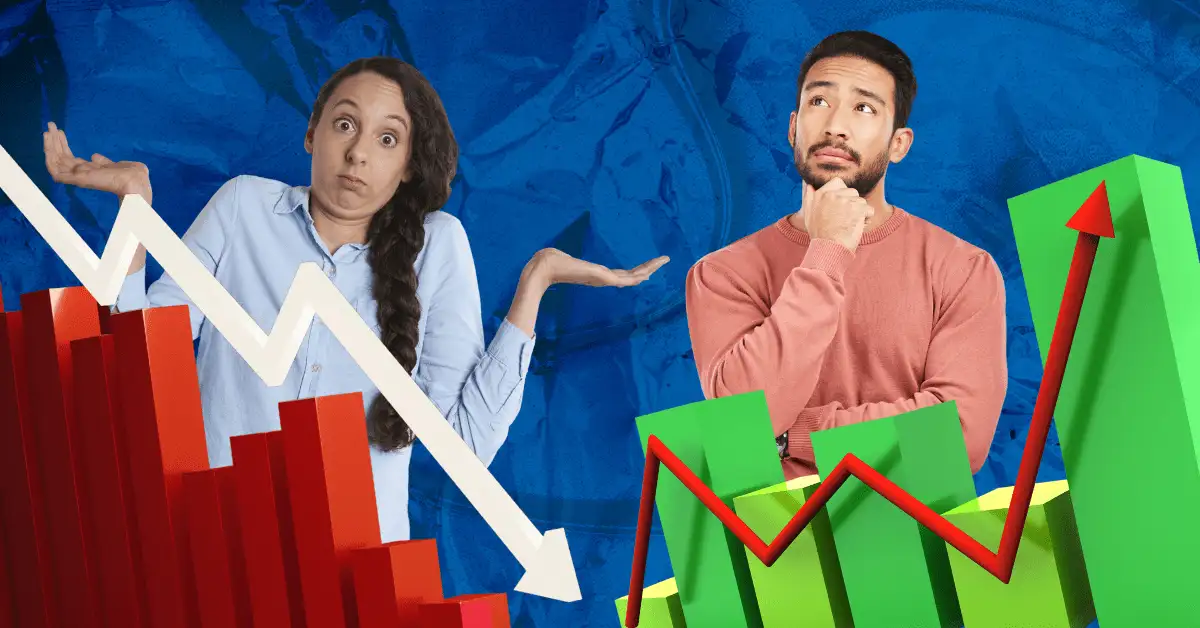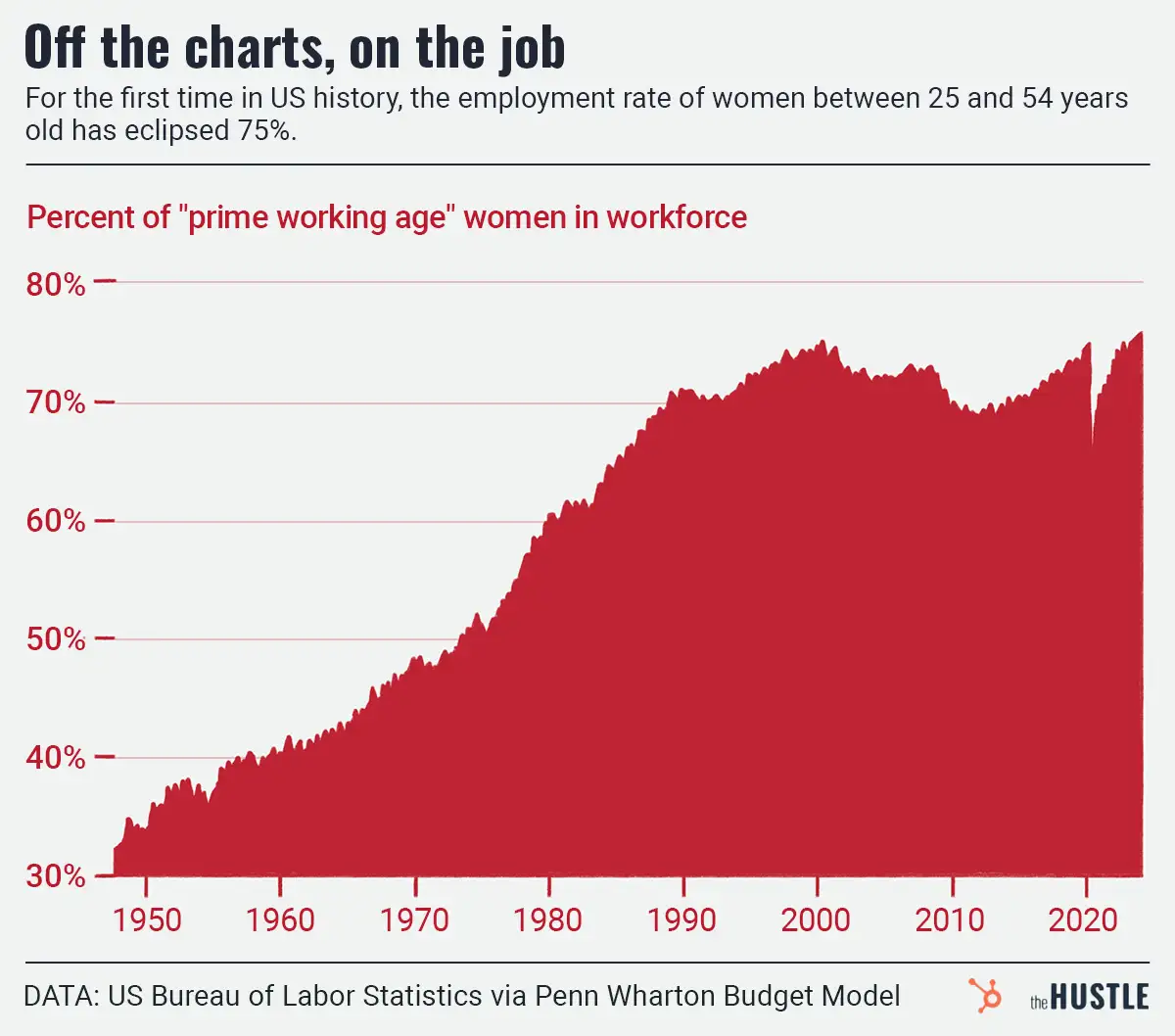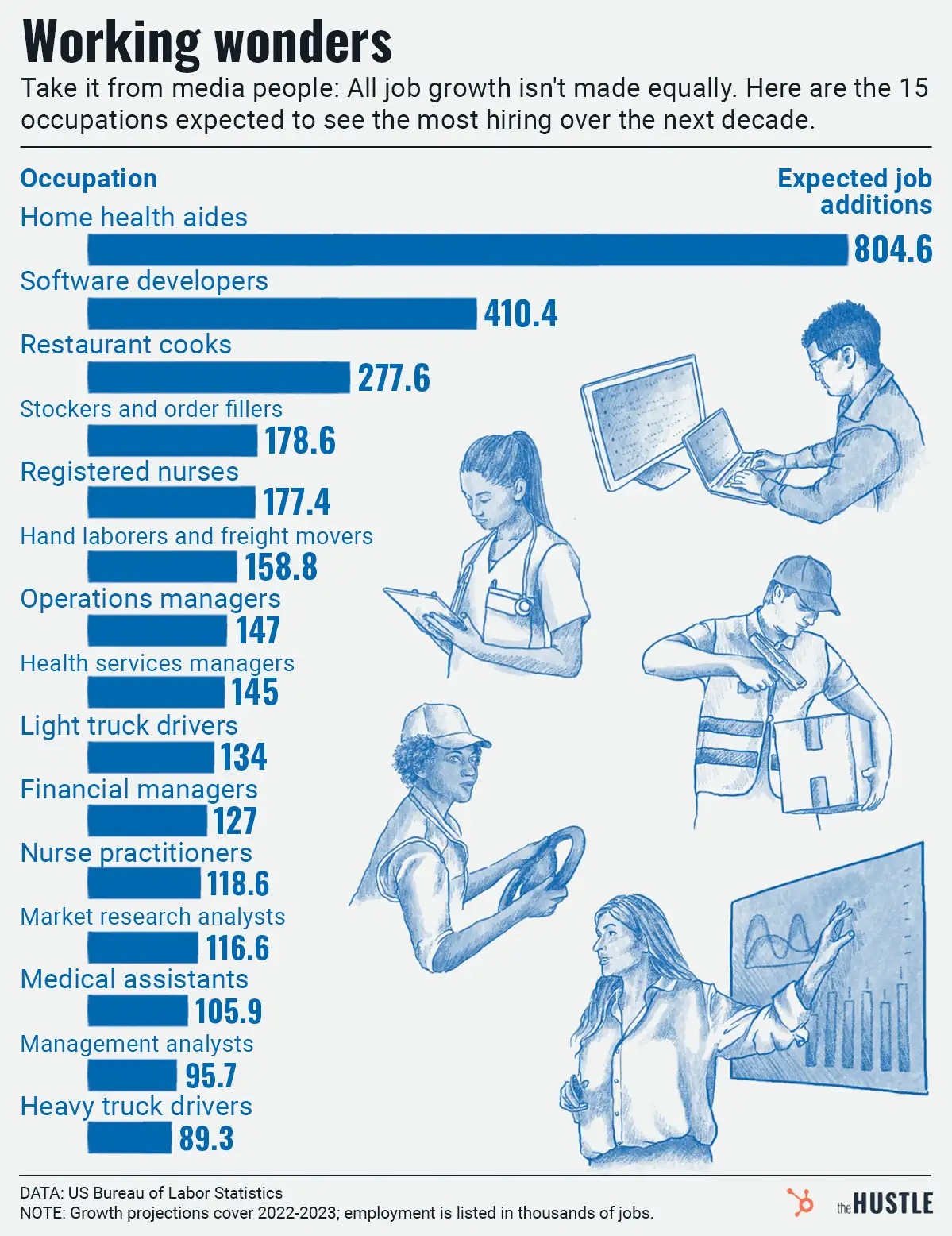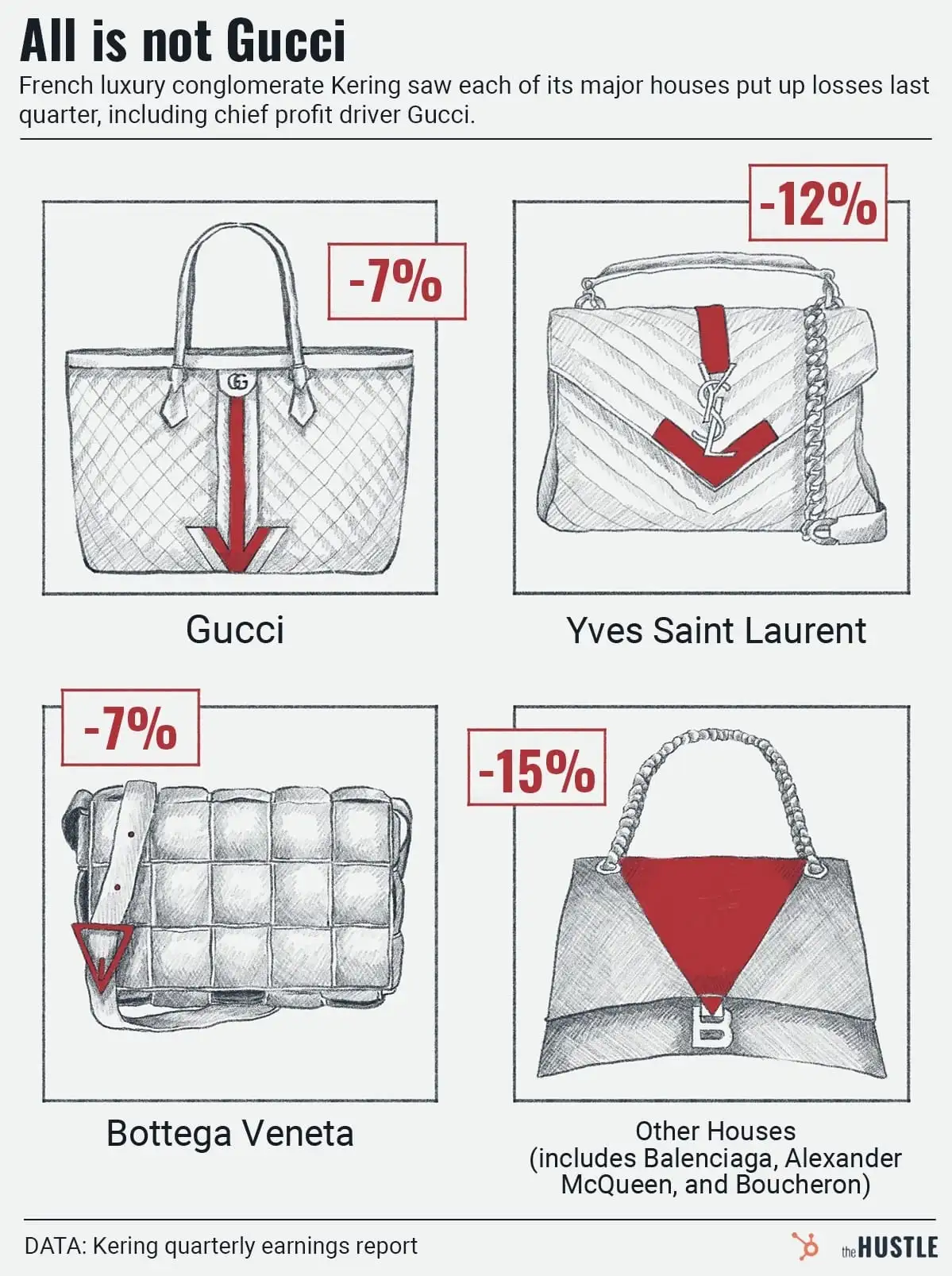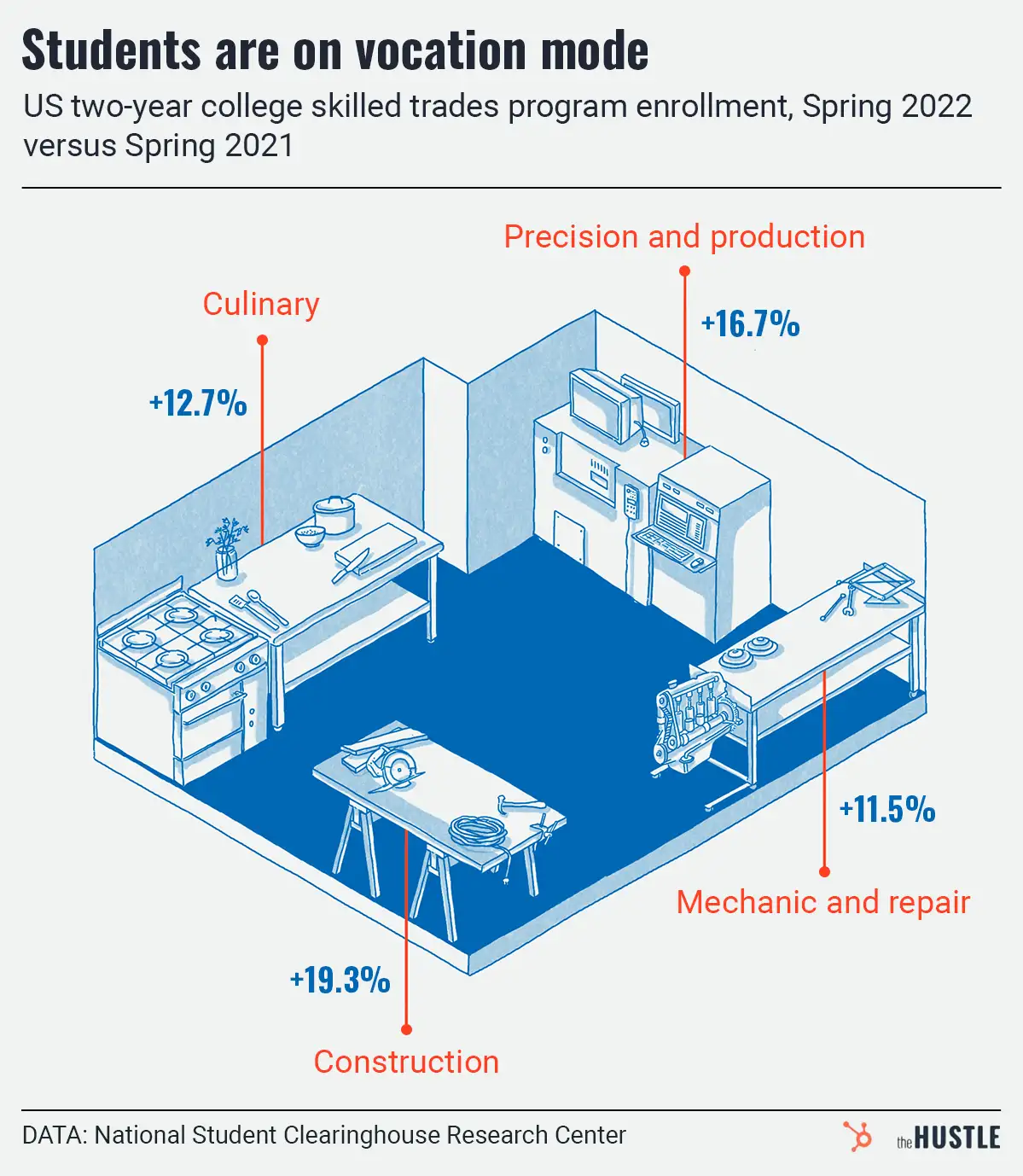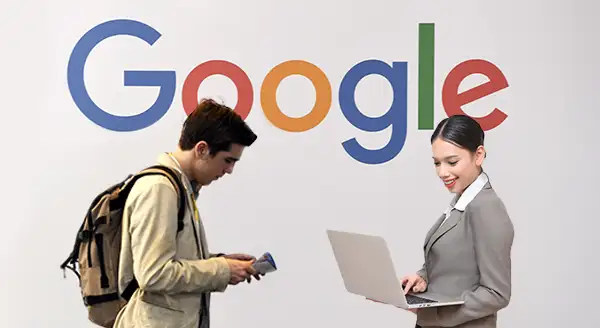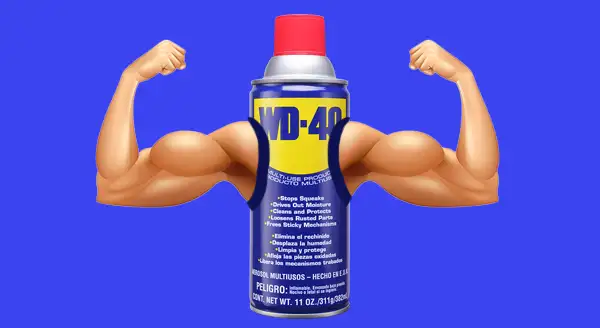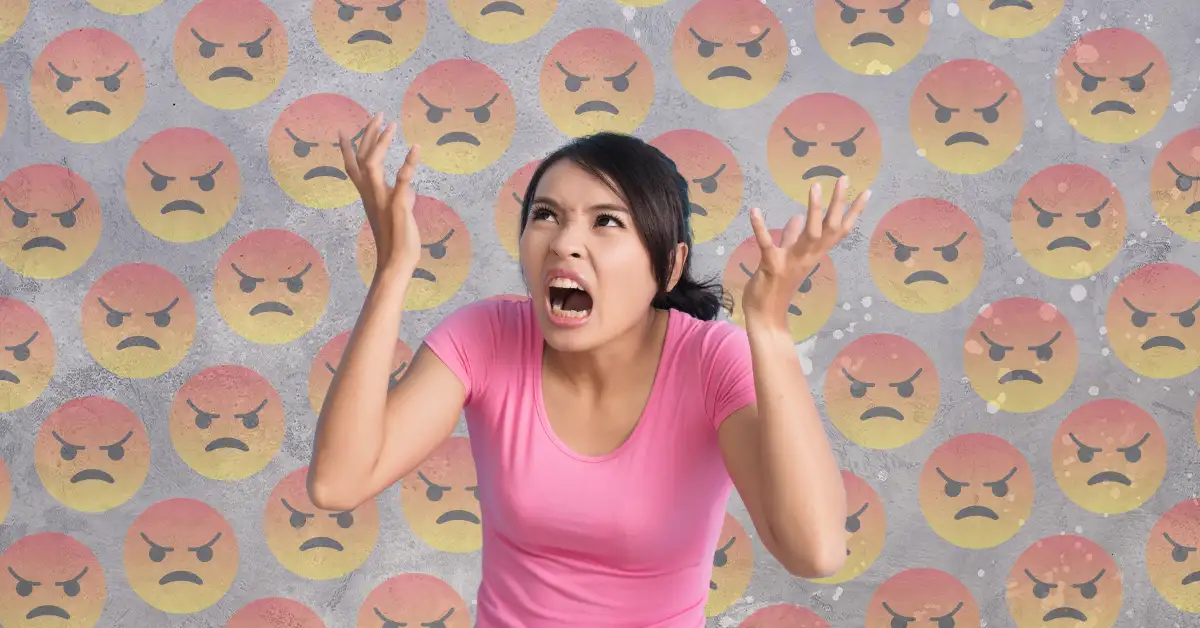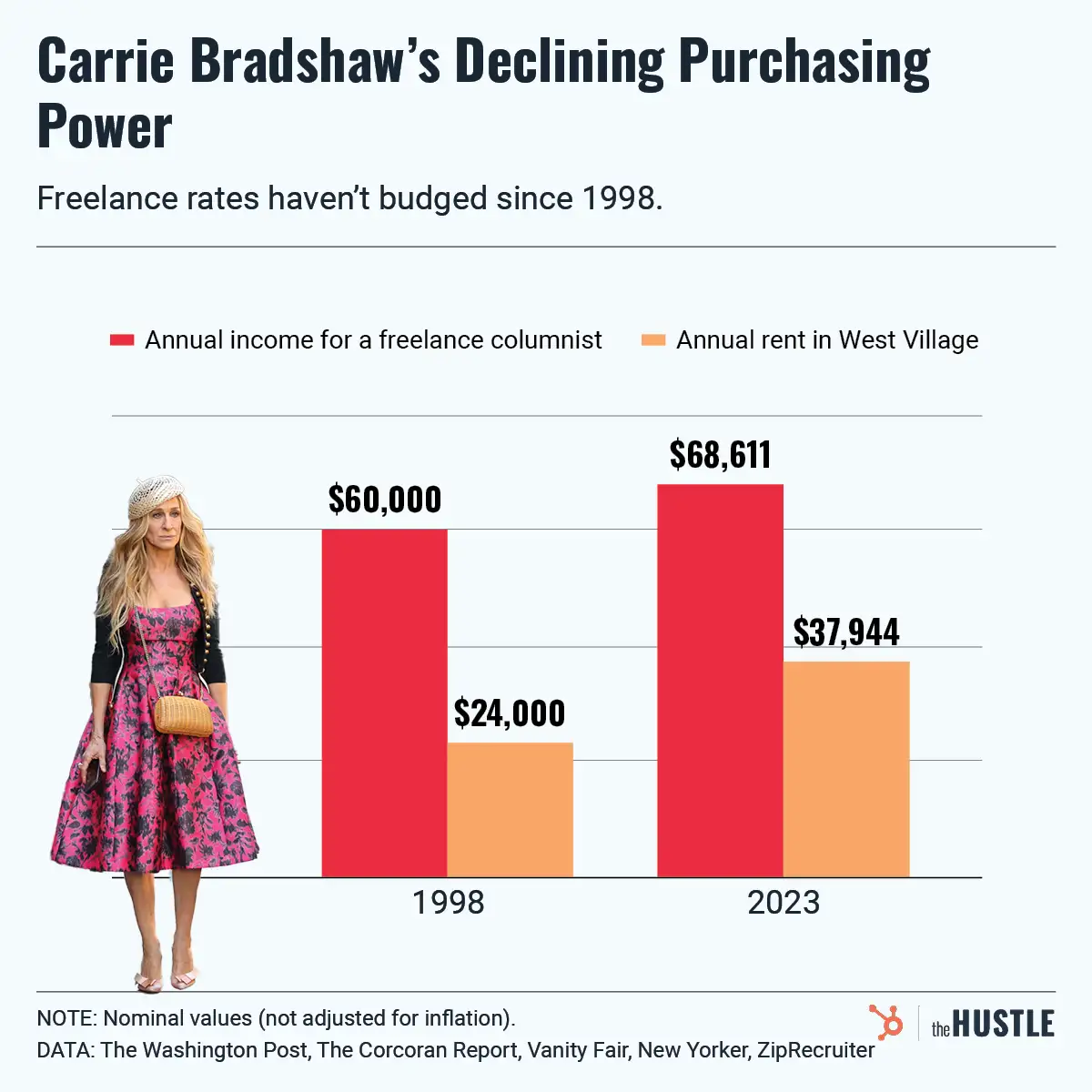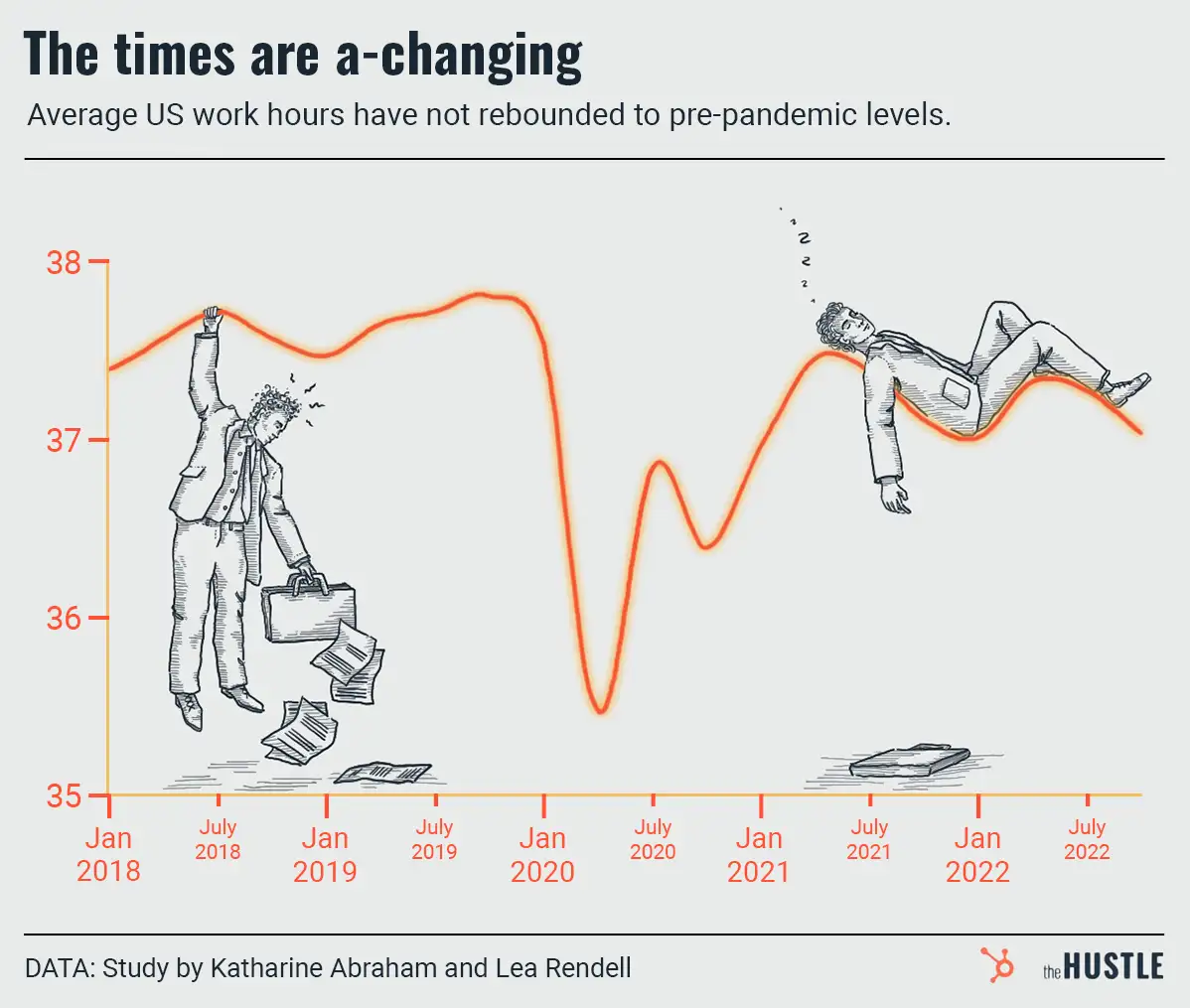Here’s how the US economy looks this week:
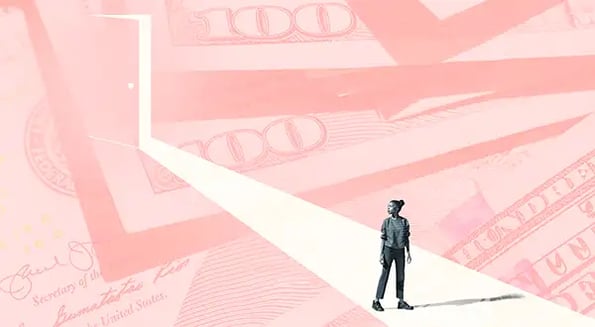
- Good: It’s growing — fast. Last quarter’s 4.9% GDP expansion rate more than doubled the previous quarter’s growth.
- Good: Median household wealth is way up, with the average family net worth topping $1m for the first time.
- Good: Hiring was up, layoffs were down, and the unemployment rate has held steady at 3.8%.
- Good: With inflation falling significantly, the Federal Reserve again decided against raising interest rates (for now).
- Bad: is still how the populace generally feels things are going, despite all of this.
What gives?
The numbers don’t signal dark economic times, yet — as The Wall Street Journal’s Greg Ip notes — the University of Michigan’s long-running consumer sentiment index stands at “recession-like levels.”
Why? Ip’s theories include:
- The negative feelings are tied to inflation; even as wages catch up to prices, people still run into sticker shock at grocery stores and gas stations.
- Good ol’ politics: 57% of Republicans said their personal finances were “excellent” or “good,” but, as is typical when opposing parties occupy the White House, only 5% said the same about the broader economy.
- Collective pessimism about the economy may just “reflect dissatisfaction with the country as a whole,” lumped in with other sources of tension like crime and foreign wars.
Other factors?
Ip’s theories are sound but don’t tell the whole story — nothing can for a nation of 332m+. A few ideas we’d throw in to explain sour economic feelings:
- People are living paycheck to paycheck: A whole 62% of American adults are surviving this way.
- Retirement feels challenging at best: Having a job? Great. Thinking about doing that job every weekday until death? Deflating. A lot of people — 88% of millennials, 91% of Gen Xers, and 86% of boomers — report retirement-saving hurdles.
- Younger Americans are pissed: Starter homes can be unattainable. College and childcare costs are absurd. That “worse off than our parents” feeling is real and festering.
FWIW: Polling on dogs is often informal and limited to “Who’s a good boy/girl?” — but with dog treat purchases down, US pups probably aren’t wagging their tails for the economy either.
Topics:
Economy


